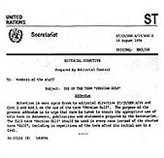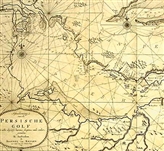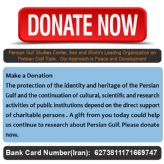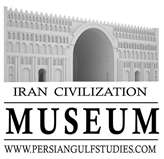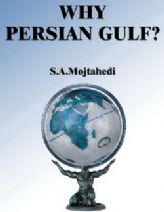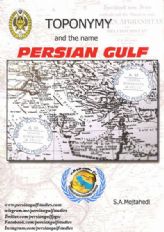The United Arab Emirates and Saudi Arabia are aiding terrorists in Yemen
Date: 9/1/2018 9:53:33 AM
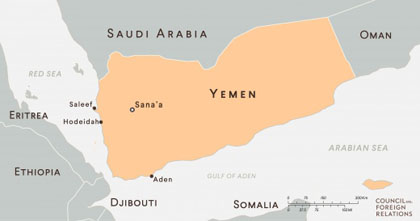
The United Arab Emirates and Saudi Arabia are aiding terrorists in Yemen
Mourners attend a funeral of people, mainly children, killed in a Saudi-led coalition airstrike on a bus, in Saada, northwestern Yemen, on Aug. 13. (Naif Rahma/Reuters)
By Sheikh Meshal bin Hamad Al-Thani / Washengton Post
Sheikh Meshal bin Hamad Al-Thani is Qatar’s ambassador to the United States.
The military coalition led by the United Arab Emirates (UAE) and Saudi Arabia launched airstrikes this month in northern Yemen that hit a bus filled with children, killing dozens of young boys who were on a school field trip. The incident prompted outcries from the international community and drew further concerns about the war in Yemen.
At the same time we are reading about the horrific bombing that killed 44 children, new Associated Press reporting from Yemen has laid bare the fact that the UAE and Saudi Arabia have been busy cutting “secret deals with al-Qaida fighters, paying some to leave key cities and towns and letting others retreat with weapons, equipment and wads of looted cash … hundreds more were recruited to join the coalition itself.” It is rather ironic that while working with al-Qaeda in Yemen, the UAE has been relentlessly demonizing Qatar, the American ally that hosts the largest U.S. military base in the Middle East, accusing it of supporting terrorist groups. While the UAE has been pursuing its own expansionist ambition in Yemen and the Horn of Africa at the expense of regional security, Qatar has been facilitating hundreds of missions through Al-Udeid Air Base against al-Qaeda, the Islamic State and others who threaten peace and stability in the Middle East.
There is no question that the humanitarian tragedy created by Saudi Arabia and the UAE in Yemen must come to an end — by one count 50,000 Yemenis have died in combat to date. It falls on our neighbors to take the right steps to bring peace and stability to Yemen, and the region writ large. Those steps do not include allowing al-Qaeda to stockpile arms and cash, or worse, incorporate extremist fighters into the coalition. These are the actions of an enemy, not an ally.
Unfortunately, our neighbors are shortsighted when it comes to Yemen. They see the war as a public relations exercise in which stories are contained and American perceptions reshaped, instead of properly addressing the very real problems they have created. We have seen this approach to countering terrorism and extremism before, with deadly results. There is no option to sweep radicals under the rug. Saudi Arabia and the UAE tried to ignore radicalization within their own borders in the late 1990s and early 2000s. The result was Osama bin Laden’s attacks against American embassies and the USS Cole, and on 9/11. Nearly all the 9/11 hijackers came from Saudi Arabia or the UAE, and the UAE was being singled out in the 9/11 Commission’s report for its role in laundering money for the terrorists.
Recent history proves that radicalized extremists who are allowed to fester cause more harm than if they are dealt with swiftly and directly.
We should be engaging in dialogue to find a political solution in Yemen. Instead, our neighbors have chosen to turn their backs on the region, letting extremists flourish in an already fragile state. Our collective goal in the Middle East is to counter terrorism, but our neighbors have different priorities.
It should be concerning to American policymakers, as well as American allies, that on one hand, the UAE proclaims to be the United States’ strongest ally in the region, while at the same time, reports surface about how “one Yemeni commander who was put on the U.S. terrorism list for al-Qaida ties last year continues to receive money from the UAE to run his militia.”
The dark irony of all of this is that Yousef al-Otaiba, the UAE ambassador to the United States, has repeatedly accused Qatar of funding terrorism, and his country and their cabal have used that argument as a primary justification for their illegal blockade on the state of Qatar. The UAE is so desperate to drive a wedge between Qatar and the United States that it spent millions (some secretly) to persuade different circles in Washington that their illegal blockade is good for the United States.
For now, we must pose urgent questions to the UAE and Saudi Arabia: How can they in good faith give arms, safe passage and financing to terrorists? What are the terrorist groups doing with all of these funds and weapons? What steps will Saudi Arabia and the UAE take at once to ensure that no further illegal actions take place? What will be done to defuse the threats they created? How much longer can our neighbors continue to look the other way?
And most importantly, what will they do to end the humanitarian crisis they created, in a way that does not foster another generation of radicalized terrorists?

